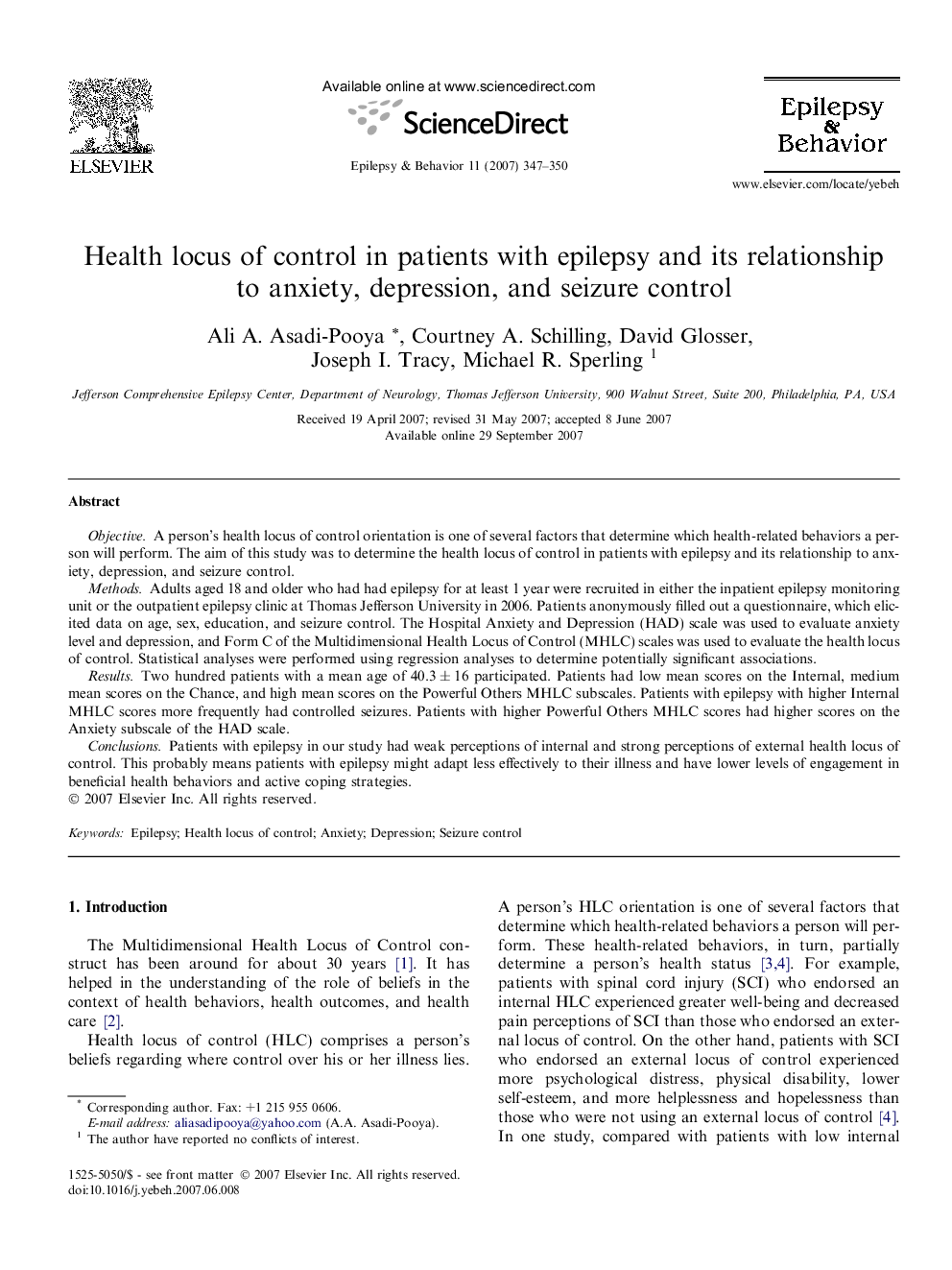| کد مقاله | کد نشریه | سال انتشار | مقاله انگلیسی | نسخه تمام متن |
|---|---|---|---|---|
| 3050779 | 1185963 | 2007 | 4 صفحه PDF | دانلود رایگان |

ObjectiveA person’s health locus of control orientation is one of several factors that determine which health-related behaviors a person will perform. The aim of this study was to determine the health locus of control in patients with epilepsy and its relationship to anxiety, depression, and seizure control.MethodsAdults aged 18 and older who had had epilepsy for at least 1 year were recruited in either the inpatient epilepsy monitoring unit or the outpatient epilepsy clinic at Thomas Jefferson University in 2006. Patients anonymously filled out a questionnaire, which elicited data on age, sex, education, and seizure control. The Hospital Anxiety and Depression (HAD) scale was used to evaluate anxiety level and depression, and Form C of the Multidimensional Health Locus of Control (MHLC) scales was used to evaluate the health locus of control. Statistical analyses were performed using regression analyses to determine potentially significant associations.ResultsTwo hundred patients with a mean age of 40.3 ± 16 participated. Patients had low mean scores on the Internal, medium mean scores on the Chance, and high mean scores on the Powerful Others MHLC subscales. Patients with epilepsy with higher Internal MHLC scores more frequently had controlled seizures. Patients with higher Powerful Others MHLC scores had higher scores on the Anxiety subscale of the HAD scale.ConclusionsPatients with epilepsy in our study had weak perceptions of internal and strong perceptions of external health locus of control. This probably means patients with epilepsy might adapt less effectively to their illness and have lower levels of engagement in beneficial health behaviors and active coping strategies.
Journal: Epilepsy & Behavior - Volume 11, Issue 3, November 2007, Pages 347–350